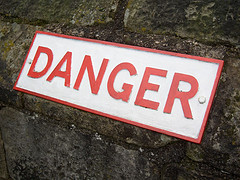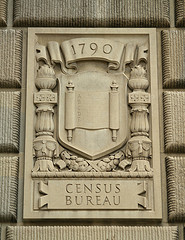When times get tough, the crooks start coming out of the woodwork. The last thing you need is to be hit by a Visa, Mastercard, etc. credit card scam when you’re already having a hard time making ends meet. With the current world economy, scammers are stepping up their game so you’ve got to be aware of what they’re up to and keep your credit, your money, and your identity safe.
There are probably a million ways to keep from being the victim of a credit card scam or fraud attempt, but the following six habits (and these are good habits to have) will go a long way in protecting you from Visa scams, Mastercard maliciousness, and Amex anomalies.
- Trust but Verify:
If you receive a phone call from your credit card company, make sure you’re actually talking to your credit card company. Cardholders are increasingly reporting calls from “representatives” who sound official (even going so far as to present “badge numbers” and other official-sounding information) but end up being scam artists. If someone calls your home claiming to be from your card company, politely hang up and call the number on the back of the card itself and verify. At that point you’ve made sure you’re talking to a real credit card company rep and can address any issue they called about in the first place.
- Review Your Credit Card Statements:
This is a no-brainer, right? I don’t even know why I mentioned this because you keep monthly tabs on your credit card activity, looking for odd charges, inconsistencies, and anything else unfamiliar. Reviewing your credit card statement may be the only indication you have that something’s wrong, so do it every time.
- Keep Your Card Hidden:
At restaurants, the grocery store, or anywhere that a stranger might see your card, be sure to keep it under wraps. Visa debit card scammers (and other cards, too) have been known to sneak into legitimate businesses and install cameras to pick up either your card number or your PIN number. Keep them covered as much as possible. And don’t forget to be sure that, at a restaurant, your server actually picks up the “Merchant Copy” of your bill. Many places, but restaurants especially, print out the card number on the signed receipt.
- Use a Secure Site (https):
We’ve already discussed how to spot a fake website, but now you’ve also got to tie that into the first item in our post “5 Simple Tips to Staying Secure Online“. The basic gist is this: When you’re submitting sensitive information, be sure to look in the address bar to make sure you’re on a secure, or “https” site.
- Keep One Card for Online Purchases:
Using one credit card for online purchases will not only help keep your transactions easy to account for (“Honey, why did you put that flat screen TV on the Visa at Amazon?”), but it will also help reduce the hassle you’ll have if/when your card info gets stolen.
- Shred Old Credit Cards & Statements:
It’s not enough to just toss out old cards and to put your old card statements in the recycling bin. Invest in a shredder, preferably a cross-cut shredder. They’re relatively inexpensive, safe, and easy to operate. And as an added bonus, they make it darn near impossible for crooks to get/read your credit card statements.
Keeping yourself free from the headache of identity theft, stolen credit cards, and unwanted purchases is your job. Sure, your card company may have monitoring in place, but only you truly care about the security of your account, so get proactive and learn to protect yourself from credit card scams.
If you're looking for great anti-virus software that won't break the bank, try StopSign. You don't pay extra for tech support for difficult malware, and our web protection software just works. Download & install StopSign to find out why our members choose us over the other options.








Recent Blog Comments